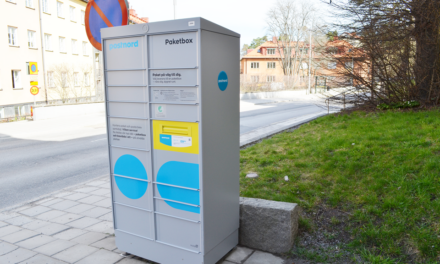
EU agrees to open 40% of postal markets by 2006
European Union governments agreed on Monday gradually to open their postal delivery markets to competition, reducing the traditional dominance of national mail monopolies.
After more than a year of wrangling, ministers from the 15 EU member states reached a compromise that would open about 40 percent of the bloc’s postal market by 2006, EU single market commissioner Frits Bolkestein said.
“I am extremely pleased it’s proven possible to reach an agreement to substantially open up the market while preserving a guarantee for universal service,” Bolkestein told a news briefing after the ministerial meeting.
Estimates vary on exactly how much of the market will be forced open by the deal, but most officials put it at around 25 percent, compared with just three percent which is the legal minimum at present. Countries are free to go further.
The deal is a halfway point between those, mostly northern, countries that wanted full competition on letter delivery and those that fear job losses and higher postage prices if national monopolies are broken.
NO TOTAL LIBERALISATION
The Dutch government, which owns 43.4 percent of logistics giant TPG , voted against the deal as it did not go all the way and set a final date for full liberalisation, diplomats said. Finland, which has already completely opened its market, abstained.
France, cool on most forms of EU market liberalisation, accepted the compromise because it left open a decision on opening the entire market until after 2006.
“There is no total postal sector liberalisation,” Industry Minister Christian Pierret told reporters.
The deal, which still requires the endorsement of the European Parliament, would gradually reduce the market reserved for monopoly carriers — which currently covers any item weighing less than 350 grams.
This threshold — which exists to compensate the monopoly for having to provide a same-price service to everyone on its territory — would be reduced to 100 grams by 2003, and then to 50 grams in 2006, the text of the deal says.
A country’s outgoing cross-border mail and “direct” (junk) mail markets will be completely open for competition from 2003 in most cases.
In 2006, the European Commission will investigate the impact the gradual liberalisation has had on universal service before any final decision on complete liberalisation would be made. This could lead to full market opening by 2009.
WILD WEST
Bolkestein said independent postal regulators in each country would ensure the increased competition did not lead to “cherry picking” by private operators taking the least costly, most profitable market shares from the traditional carriers.
“The market opening will not be a sort of wild west,” he said.
Big private carriers expressed disappointment that no date was set to let them compete on the whole postal market.
“We regret the fact that this whole debate will now be prolonged for another eight years,” said Mark van der Horst of the European Express Association which represents TPG, DHL [DHL.UL], UPS (NYSE:UPS – news) and FedEx Corp (NYSE:FDX – news).
Britain, which is at the forefront of the EU’s push to liberalise former state monopolies such as electricity and gas, has been less enthusiastic about opening its postal sector, but it supported the compromise.
“Today’s decision strikes the right balance…between liberalising the market and maintaining universal service,” trade minister Douglas Alexander told Reuters.













